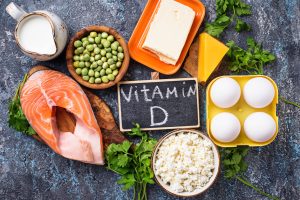Top 5 health benefits of eggs

What are eggs?
Since the domestication of the chicken, people have been enjoying and nourishing themselves with eggs.
Both the egg white and yolk are rich in nutrients, including proteins, vitamins and minerals. The yolk contains fat-soluble vitamins (such as vitamins D and E) and essential fatty acids; while most of the protein is found in the egg white. health benefits of eggs
Eggs are an important and versatile ingredient for cooking, and their particular chemical make-up is key to many important baking reactions. There are lots of different types of egg, the most common being chicken, while more gourmet choices might include duck, goose and quail.
Nutritional benefits of eggs
One medium chicken egg (boiled) contains:
84 kcal / 351 KJ
8.3g protein
5.7g fat
1.6g sat fat
18mcg folate
1.89mcg vit D
Top 5 health benefits of eggs

1. Highly nutritious
Whole eggs are nutritionally rich, supplying almost every nutrient you need. They are useful sources of some of the hard to get nutrients like vitamins D and B12 as well as the mineral iodine. Eggs are regarded as a ‘complete’ source of protein as they contain all nine essential amino acids, which we must obtain from our diet.
Furthermore, if you choose brands enriched with omega-3 fatty acids, due to the diet the chickens are fed, you’ll benefit from higher omega-3 fatty acids as well as fat soluble vitamins such as vitamins A and E.
2. May support heart health
Eggs are rich in several nutrients that promote heart health, such as betaine and choline. A study of nearly half a million people in China suggests that eating one egg a day may reduce the risk of heart disease and stroke, although experts stress that eggs need to be consumed as part of a healthy lifestyle in order to be beneficial.
3. Source of choline
Eggs are one of the best dietary sources of choline. This little talked about nutrient is needed by everyone of us for the formation of cell membranes and for brain function, including memory. It’s especially important during pregnancy and breast feeding, when an adequate supply of choline is essential for normal brain development.

4. May support eye health
As we age its normal for our vision to start to deteriorate but there are some useful nutrients, obtained from a balanced diet, which may help support eye health. Eggs are one example of an eye-friendly food. The yolk contains large amounts of carotenes, of particular note are lutein and zeaxanthin, which are important for preventing macular degeneration and cataracts. Eggs are also a source of vitamin A which is key for good eye sight.
5. May support weight management
Eggs are rich in protein, which is more filling than either fat or carbohydrate. As a food choice, eggs score well, being high on the satiety index, a measure of how filling a food is. In fact, studies show that an egg breakfast is more sustaining than the equivalent calorie counted carb breakfast and, what’s more, may help reduce your calorie intake later in the day.
These are the health Benefits of EGGs
Are eggs safe for everyone?
Salmonella food poisoning has been a concern, especially if eggs are eaten raw or undercooked. However, following changes in production protocols, the Food Standards Agency (FSA) has changed its guidelines.
Current recommendations confirm that infants, children, pregnant women and the elderly may safely eat raw or lightly cooked eggs as long as they are produced under the British Lion Code of Practice. Visit the FSA website for more information.
Another safety concern regarding eggs is that they are a common food allergen, particularly among young children. Although most children outgrow an egg allergy by the time they go to school, some cases do persist into later childhood and sometimes even adulthood.
Why do we need vitamin D?
Vitamin D is made in our skin via direct exposure to sunlight. Our liver and kidneys then convert it into a form we can use. Vitamin D is extremely important for strong bones and teeth, as it helps us absorb the calcium we eat and it also controls the amount of calcium in our blood. It’s important that our vitamin D levels aren’t low or our body won’t absorb the calcium we eat. There aren’t any visual signs of vitamin D deficiency. If our levels are very low and we are severely deficient, we are at risk of developing weaker bones which is a condition known as osteomalacia.

Severe deficiency in children may result in soft skull or leg bones and their legs may look curved or bow-legged, which is a condition called rickets. A recent study has shown that healthy vitamin D levels during pregnancy may impact other aspects of your child’s early development including their social skills and co-ordination. As low levels of vitamin D are common in the UK, it’s worth talking to your GP if you are concerned – they may suggest a blood test. Vitamin D levels explained Vitamin D blood ranges by classification:
My Way Pantry 1 Deli & Grill is a Manalapan Convenience Store and Curbside Serving that offers best salad, Burger, Cheeseteak, omelette and more.




